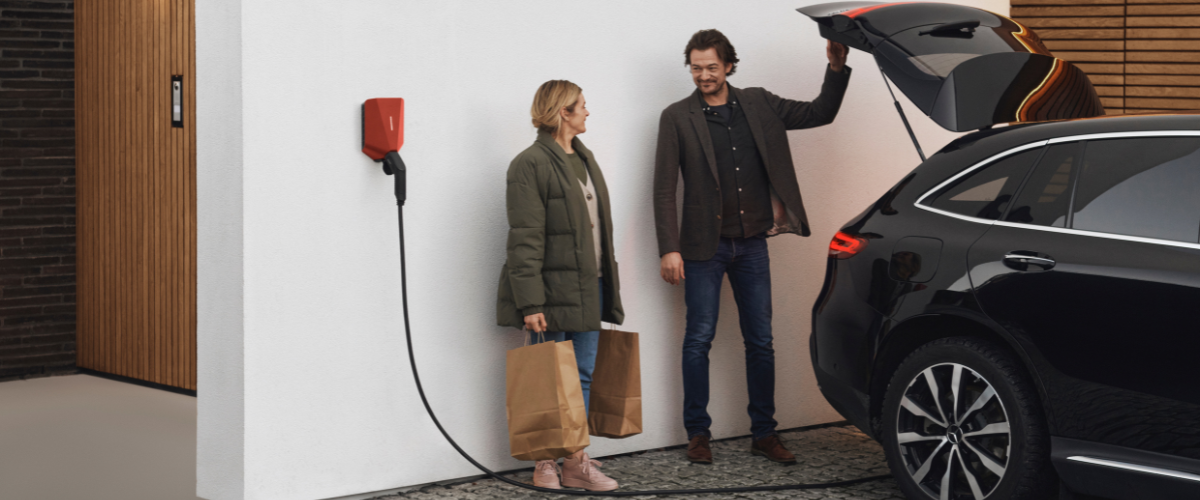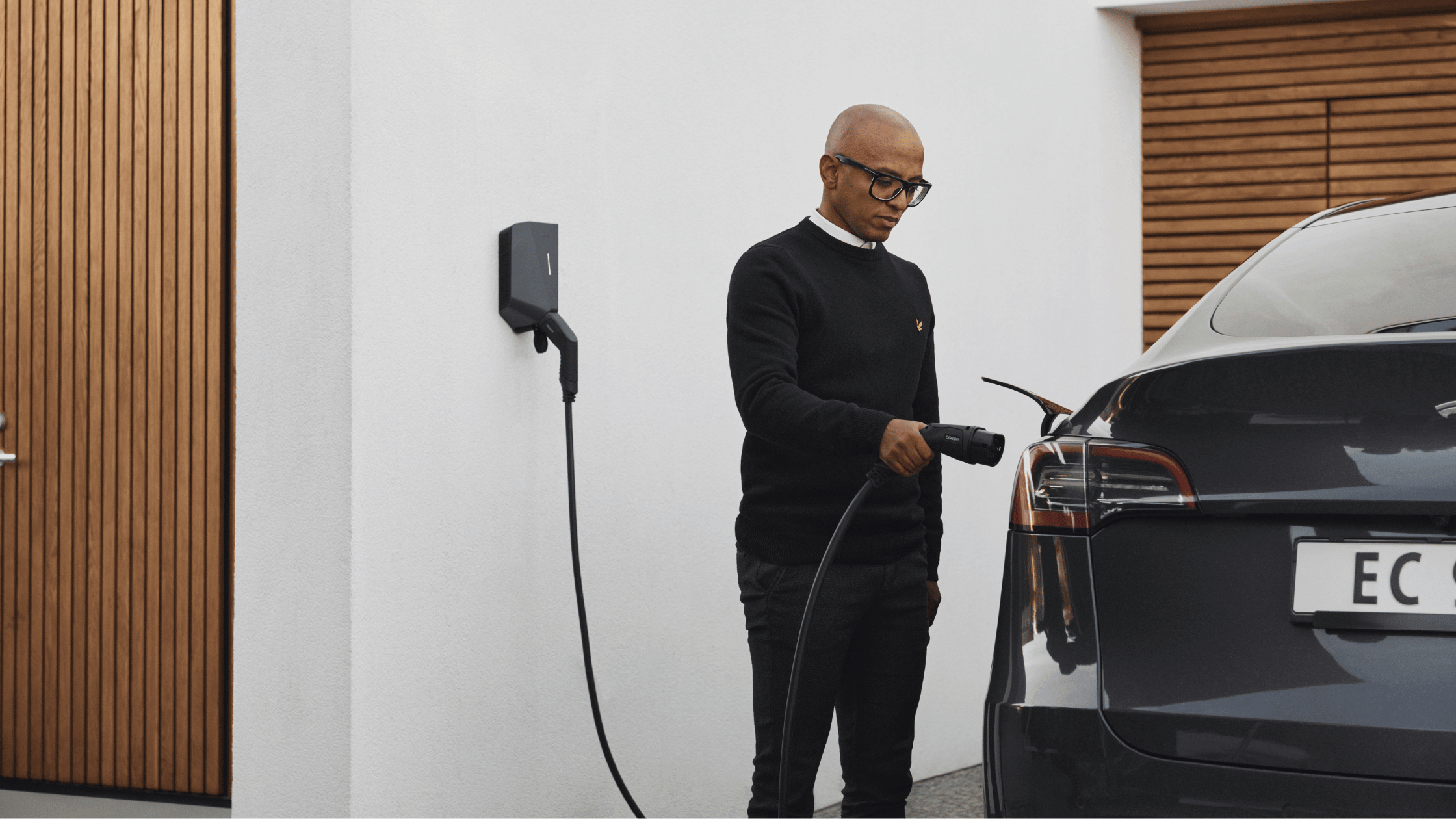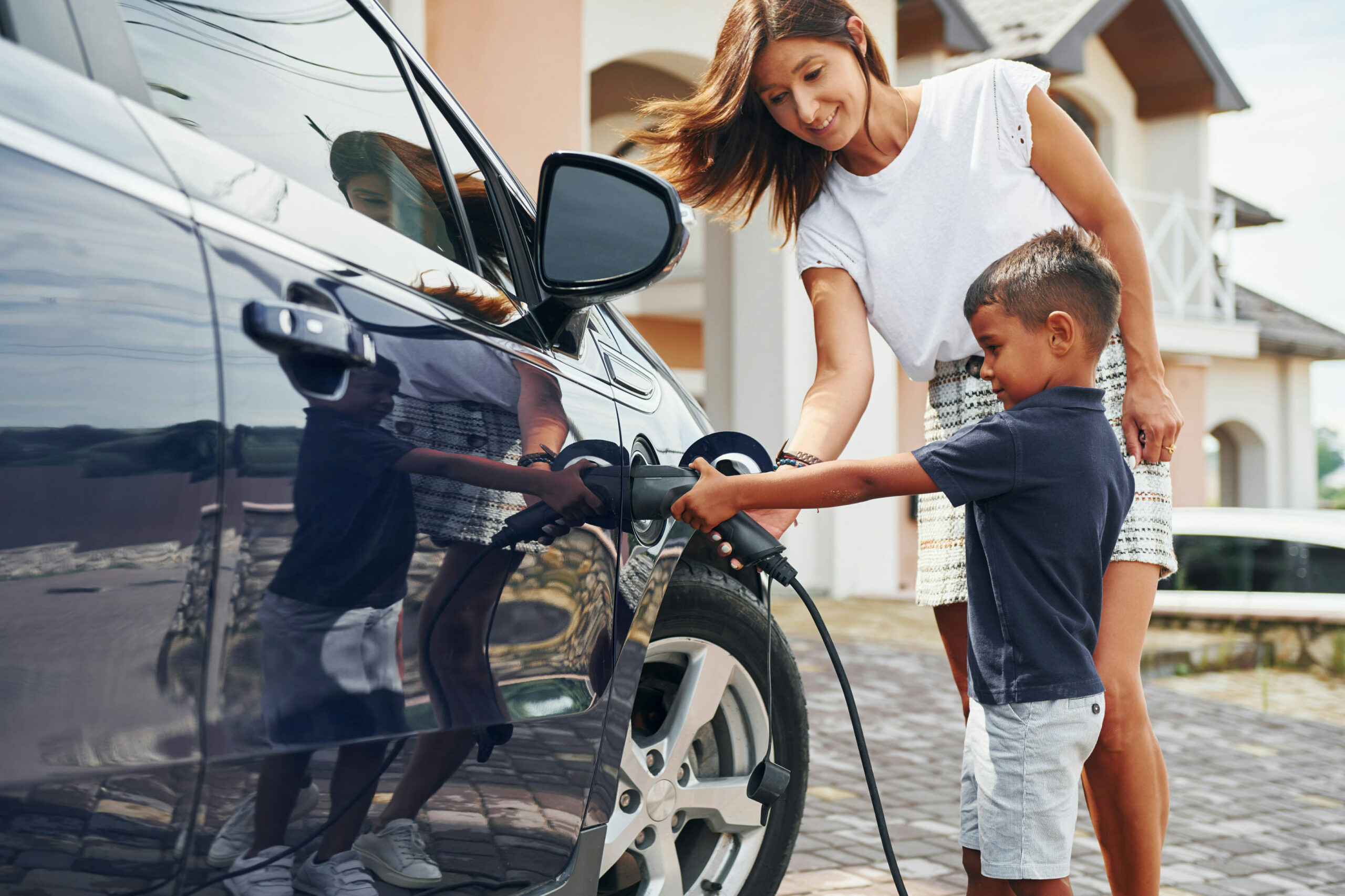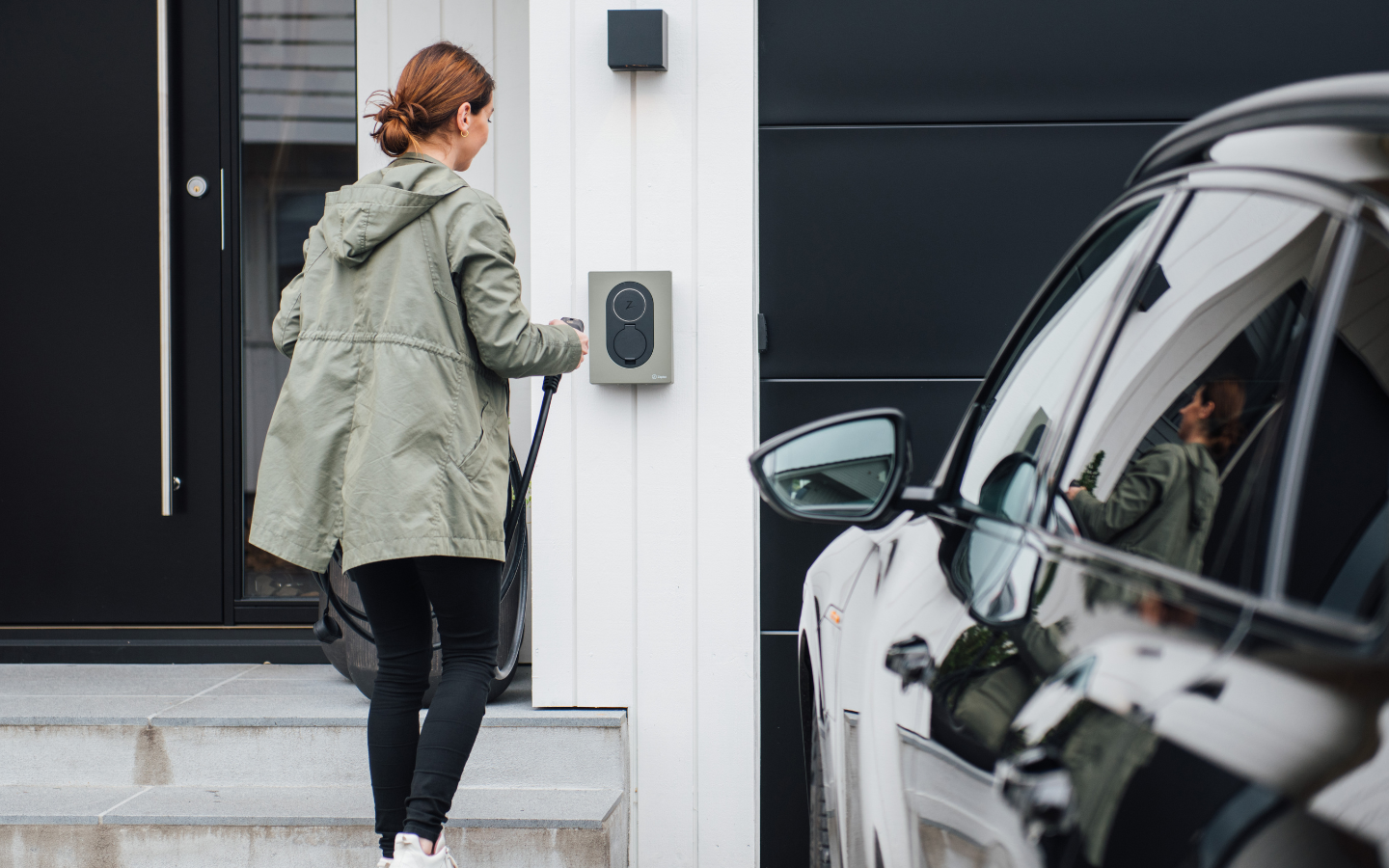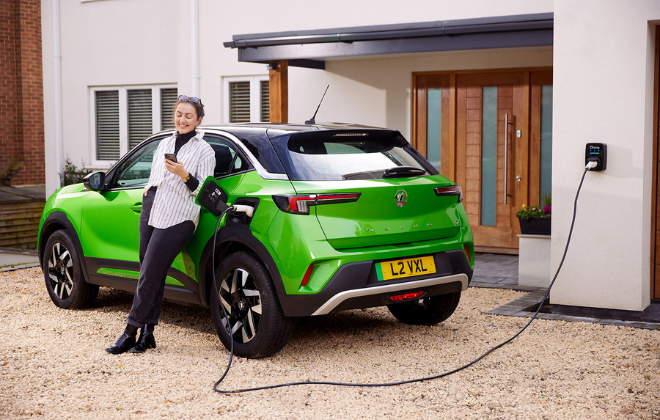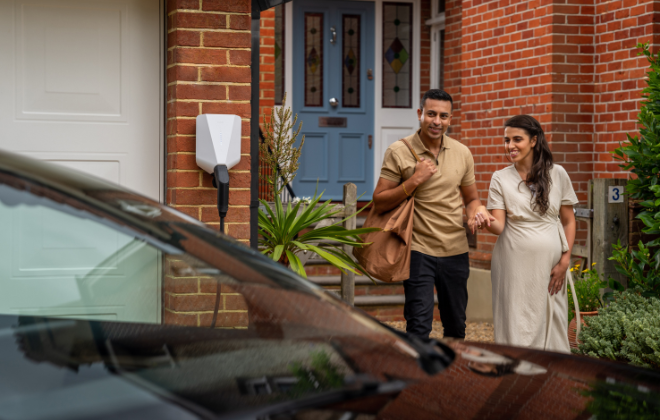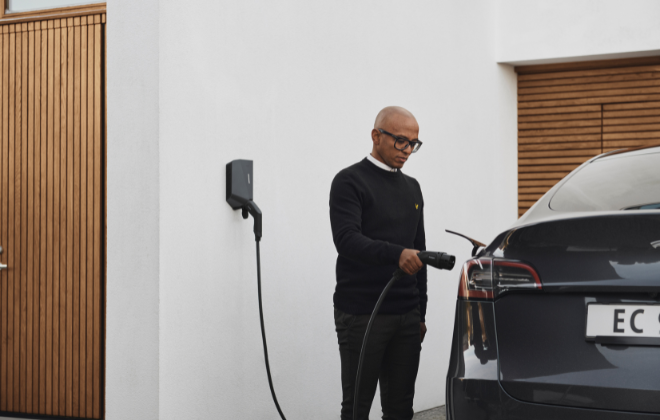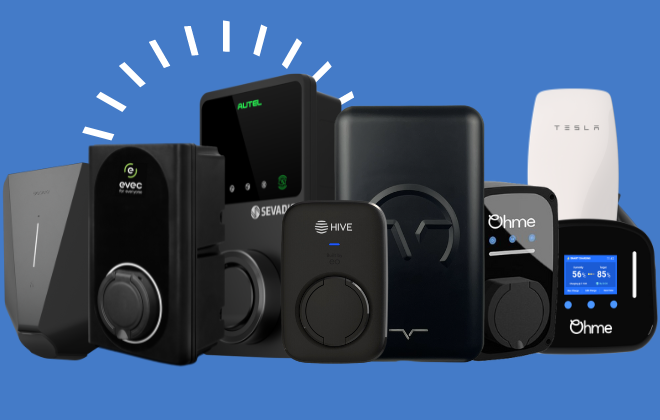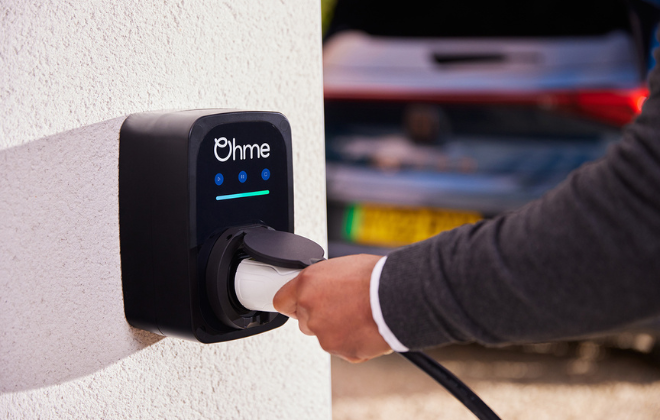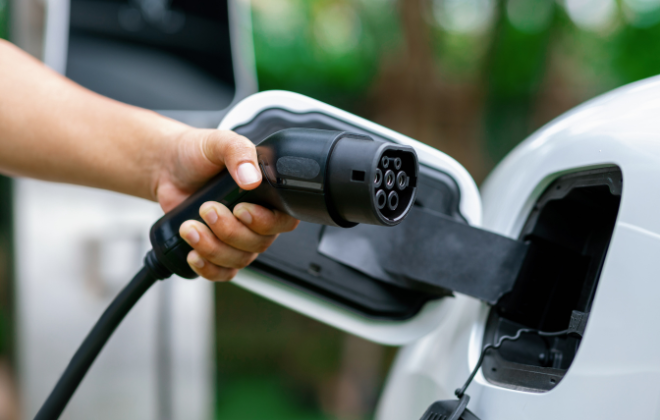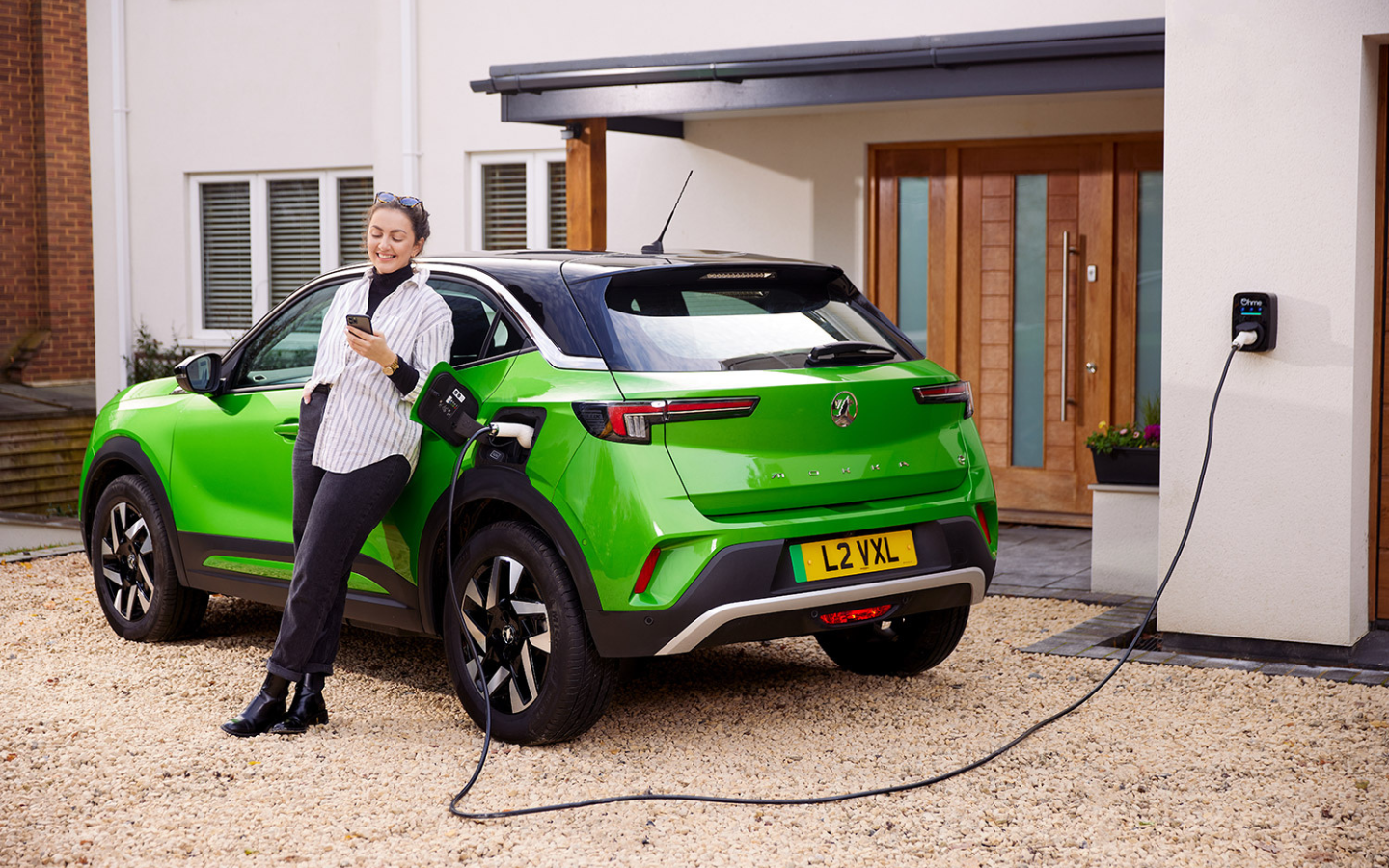
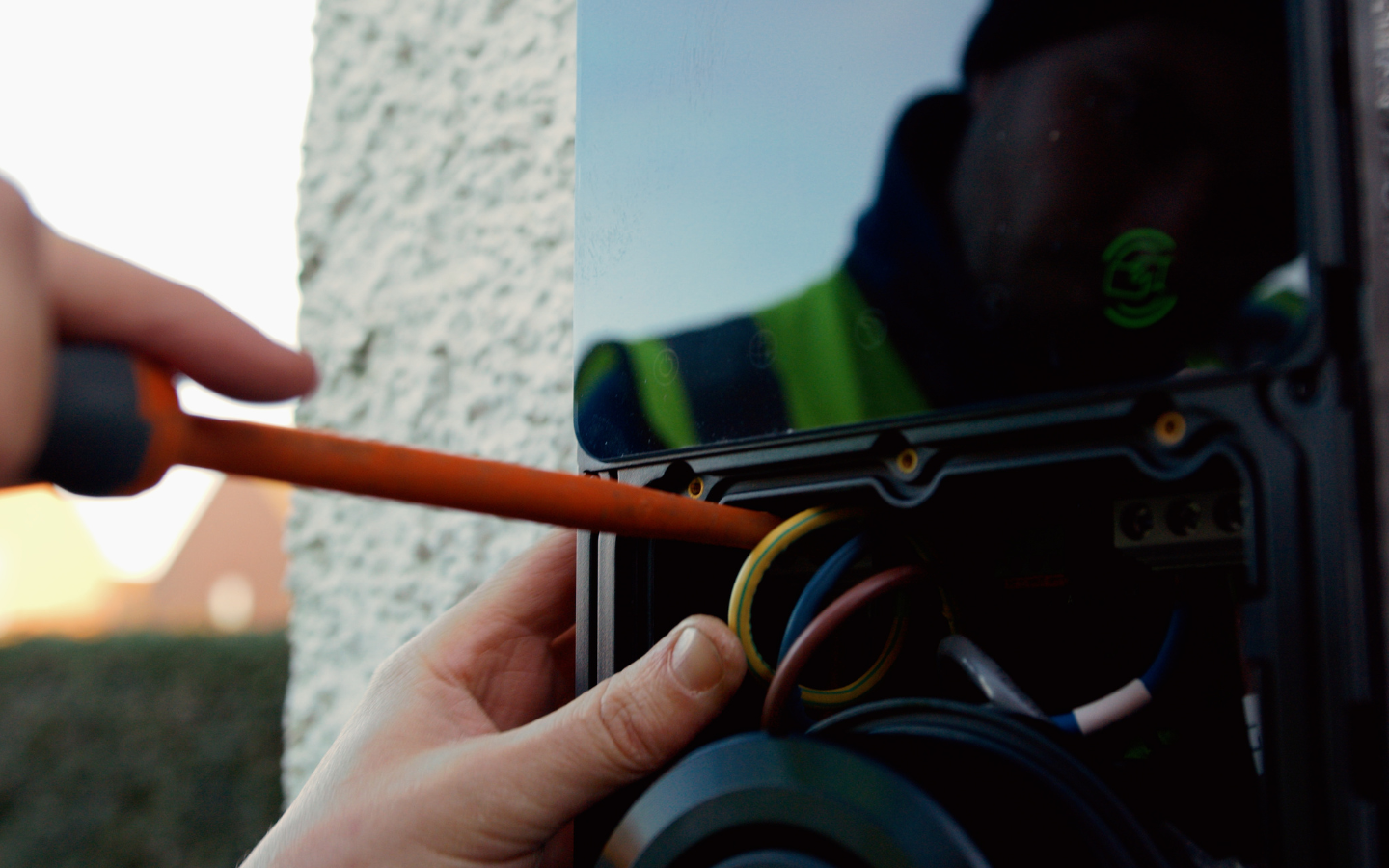
Can I install my own EV Charging Point?
Can I install an EV charger myself?
Convenient, safe, and fast, charging your electric car with a smart charger is one of the best ways to refuel. And with rising EV adoption rates (1,200,000 to date), if you’re here, you’re likely in the market for your own charging point. A good choice, if we say so.
But, after browsing various EV chargers online and discovering the high initial cost, you may be wondering whether you can buy an EV charger and install it yourself in the hopes of saving money.
Unfortunately, the answer is not a simple yes or no.
Keep reading to learn the ins and outs of installing an EV charger yourself.
So, can you install your own EV charger?
In short, technically, you can install your own EV charger. But, as an experienced, qualified and specialist electric vehicle charger installation expert, we strongly urge you not to install an EV charger yourself unless you have the relevant qualifications, experience and knowledge of the rules and regulations to do so safely and compliantly.
Electrics are not something you mess with, for starters.
Overall, we would recommend hiring an experienced professional, such as an OZEV-approved company or an accredited electrician instead.
Let’s take a deep dive into why you shouldn’t self install.
Why shouldn’t I self-install my EV charger?
1. Self-installation is likely to be more expensive
Firstly, believe it or not, self-installing an electric vehicle charger can be more expensive in the long run.
For example, if you install the EV charger wrong, you will have to pay a professional to re-install it correctly. To do so will likely be at a higher cost than originally quoted for a standard installation.
That’s not mentioning the additional work and cost of the installer fixing any mistakes or damage that may have occurred during failed installation attempts (think widespread circuit shorting) – if they even can.
One of the worst-case scenarios is that your EV charger sustains significant damage during your attempts at installation. If this happens, you will either have to purchase a brand-new home charger and be drastically out of pocket or sustain the loss, have no home charger and miss out on substantial savings. For example, charging your electric for a shockingly low price of 7p per kWh with the Intelligent Octopus Go Tariff.
Additionally, if you try to install the EV charger yourself, you will not qualify for the £350 EV chargepoint grant. Why? Because to claim the government grant, an OZEV-approved professional installer must install the charge point.
Of course, you need to qualify in the first place, and since the previous scheme for homeowners ended in March 2022, eligibility is now only for flat-owner occupiers and people living in rented properties or people with on-street parking.
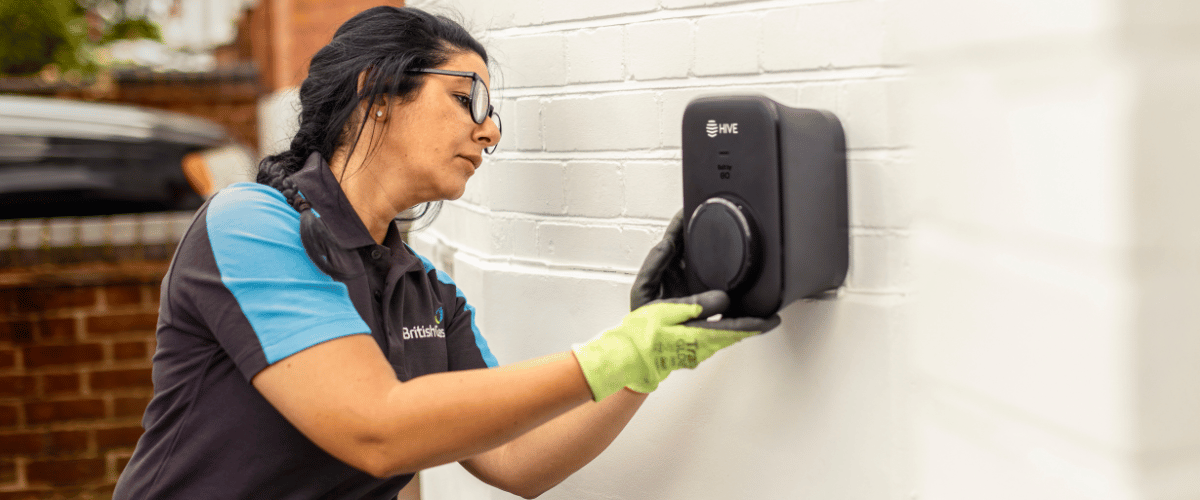
2. Self-installation leads to a loss of warranty
On top of the installation costs, if you choose to install your own home electric car charger, you will void the three-year manufacturer warranty that comes as standard with your EV home charger.
So, unfortunately, you will no longer be entitled to repairs or a new unit if your charging point has any issues in the future.
3. High risk of damage or injury
When taking the DIY EV charger installation route, there is a high chance of serious harm to yourself or others. Electrical shocks or even accidental electrical fires, are some of the dangers of installing your own EV charger.
Ultimately, dealing with an electrical installation is dangerous and complex, and is not worth the risk. That’s why it’s best practice to choose installers with experience, the correct qualifications, and training to undertake the EV charging station job to ensure peace of mind.
4. Regulations and permissions
Additionally, electricians are aware of all the relevant safety regulations and permissions, which means they can ensure that your EV charger is installed in accordance with all the necessary safety guidelines and rules, offering you peace of mind knowing your charger is compliant.
For example, regulations state that an EV charger should be on a dedicated circuit so as not to interfere with or overload other circuits in the home. As such, installing a charger would fall under Notifiable Work under Part P of the Building Regulations. This means that the work must be legally signed off and certified by an electrician who is registered with a Part P Scheme Provider, such as NICEIC, and is authorised to sign off notifiable work.
It is a criminal offence as a homeowner or landlord not to ensure that all work carried out in a home complies with Part P of the Building Regulations. As such, trying to install an EV charger yourself could lead to fines and penalties from your local government if you are unaware of the rules and regulations.
Additionally, it’s a requirement to notify your local Distribution Network Operator (DNO) of an EV charger installation. Many people are unaware of this requirement and are confused about how to do so. A professional, experienced EV charger installation company will notify the DNO on your behalf.
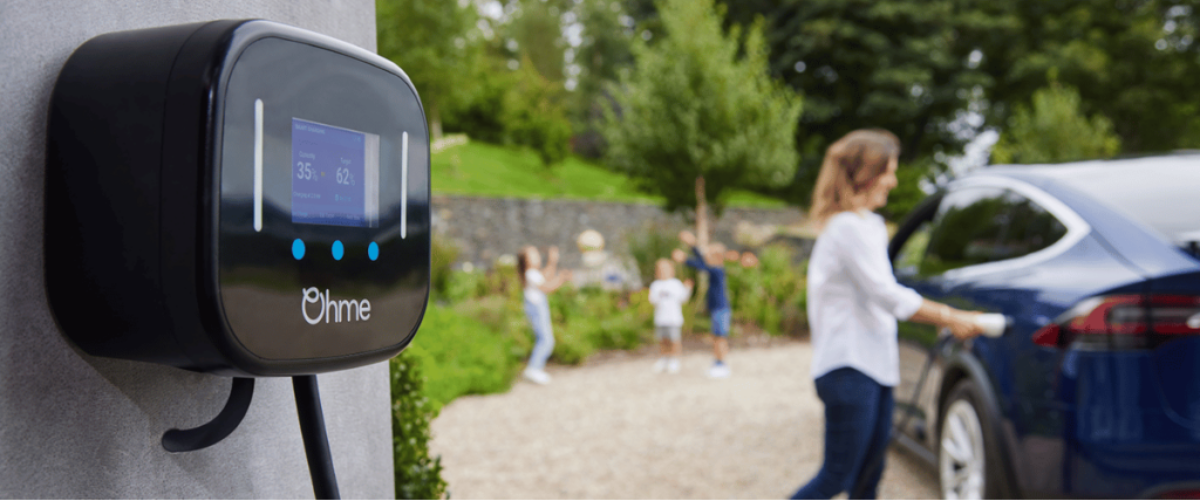
What is an expert specialist for EV chargers?
Engineer. Electrician. Installer. Expert specialist. The names for those who install EV chargers may seem never-ending. But don’t worry – they all mean the same thing.
But what do you need to be able to legally install EV chargers in the UK?
In simple terms, an EV charger expert specialist is a qualified electrician who has completed a training course for installing EV charger equipment (Electric Vehicle Charging Installations 2921) and is registered with a Competent person scheme (such as NAPIT and NICEIC).
Additionally, the installer should also be approved by OZEV (Office for Zero Emission Vehicles).
Plus, while not essential, you would hope they had plenty of EV charger installations under their belt!
Choosing an installer with the necessary qualifications and experience will ensure that the EV charger installation is completed safely and to a high standard the first time.
At We Power Your Car, we are certified by the following bodies: OZEV, NAPIT, TrustMark and NICEIC. Additionally, we hold accreditation in ISO 9001, ISO 14001, ISO 45001, and Alcumus SafeContractor.
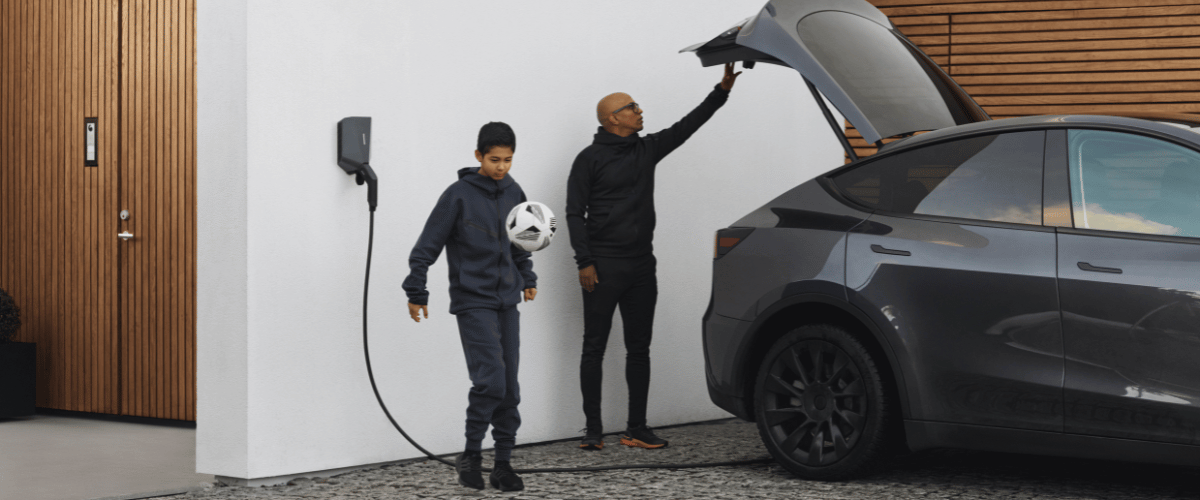
What are the benefits of having an expert specialist install your EV charger?
1. Technical support and advice throughout the installation process
A key reason to use an expert specialist instead of attempting a self-install is that they can guide you through getting an EV charger, from pre-installation to post-installation.
First, they can advise you on the best type of charger for your needs. EV charging experts are familiar with all the different kinds of chargers available, so they can advise you on which one will be best for you based on your vehicle, the type of electricity supply you have and the amount of power you require.
You can also get into detail about any special features you may be interested in. A specialist can then advise on the best location for the EV charger installation. For example, some locations may require more work than others, (such as detached garages). In this instance, a specialist can discuss the cable routing with you and ensure the work is neat and discrete.
During the installation, the electrician can demonstrate how to use the charger and guide you through the accompanying smartphone app.
And in the event of any problems or issues arising after the installation has taken place, they can provide the necessary support to ensure the problems are resolved as quick as possible, and you don’t have to go a day without your charger.
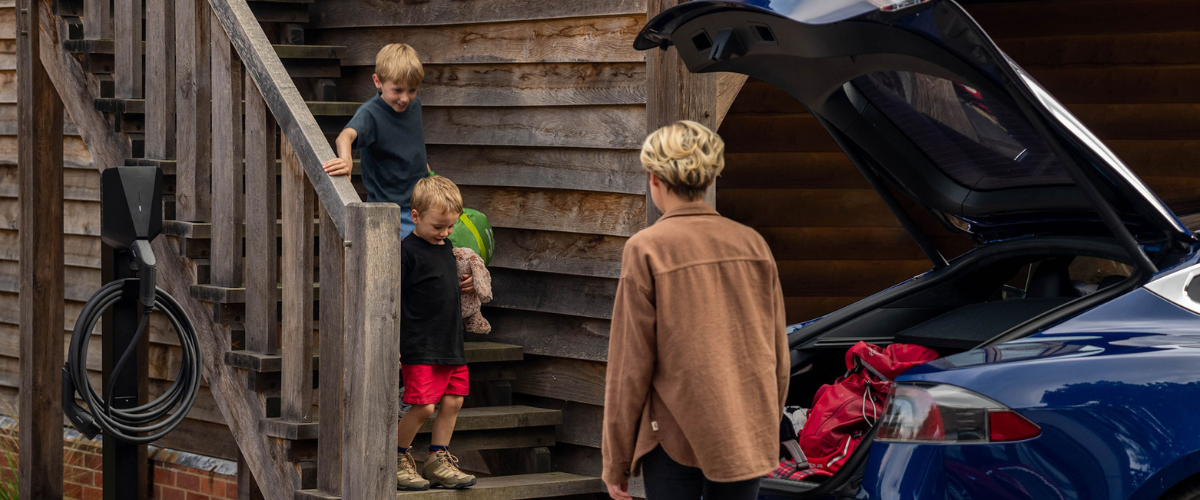
2. Efficiency
An expert specialist can carry out the EV charger installation quickly and efficiently. In fact, qualified and competent electricians are highly skilled and experienced, so they can install the charger speedily, without any problems, and ensure your car charging point is up and running as soon as possible so you can start taking advantage of the benefits from the get-go.
Think of the time, effort and money you could save.
Interested in an EV charger? Find out how long it takes to install one.
How do I get an EV charger installed at home by a professional?
If you are thinking about having an EV charging point installed at home, you should use an experienced, skilled, and certified installer.
Using a trained professional will ensure your charger is installed safely and correctly the first time. Likewise, you can qualify for any government grants, you keep your home charger warranty, and there won’t be any preventable accidents.
We’d recommend finding a qualified EV charger professional on the OZEV-approved installer list to ensure they are a trusted entity with the correct qualifications (you’ll find We Power Your Car listed there).
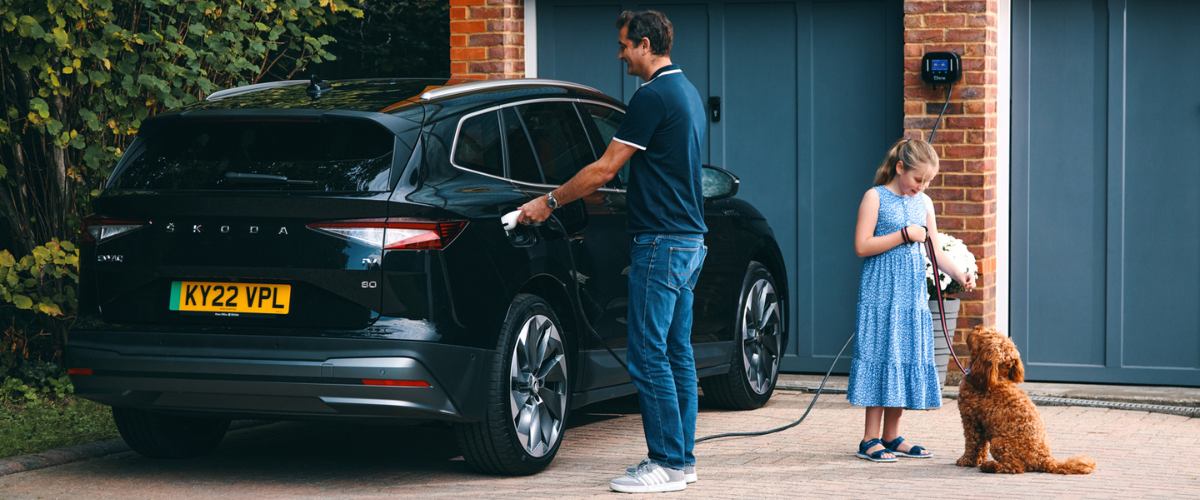
Summary:
- Technically, you can install your own electric vehicle charger. But if you’re wondering – Should I install an EV charger myself? The answer is no. It’s strongly recommended that you don’t install an EV charger yourself unless you are a qualified and experienced professional, as there are rules and regulations that need to be followed to ensure a compliant, safe installation. Attempting to install your own EV charger can result in risk of damage, loss of EV charger warranty and non-compliance with regulations and permissions that can lead to fines.
- As a customer, there are key benefits to choosing a professional electric car charger installation company. You receive technical support and advice, in addition to an efficient, safe installation, by having an expert specialist install your home EV charger.
- To get an EV charger installed at home by a professional, find a qualified EV charger professional on the OZEV-approved installer list to ensure they have the necessary qualifications.

Why choose We Power Your Car for your electric vehicle charger installation?
As approved expert specialist EV charger installers, we handle the entire EV charger solution on your behalf. From enquiry to post-installation, taking the hassle of your electric car charger installation – including DNO paperwork. With experienced, expert EV charger installers across the UK, we can install your EV charger nationwide, ensuring simple, quick home charger installation.
If you are looking to get an EV charger installed at your home, click below to get your free quote, or contact us for more information or any queries you may have.
For more information and our latest updates, follow us on Facebook, Instagram, Twitter, LinkedIn and YouTube.
Related articles_
Stay up to date on the latest from We Power Your Car_
I consent to receive newsletters from We Power Your Car. Please see our Privacy Policy
